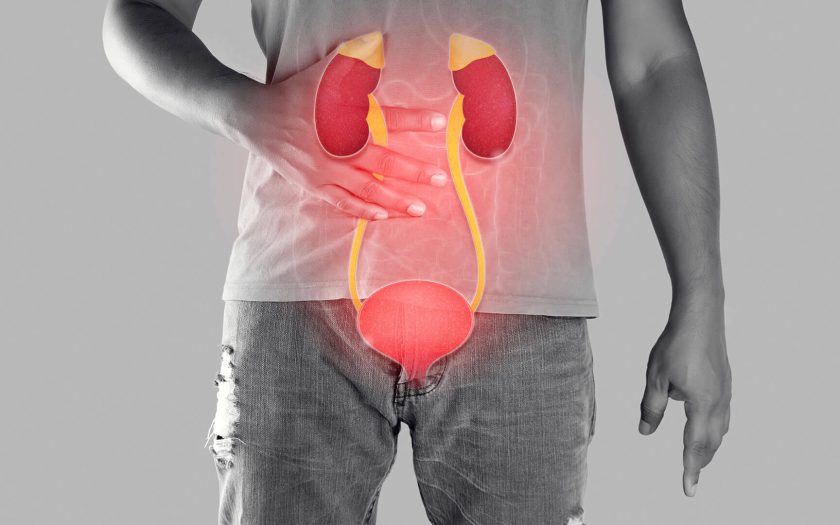Swimming in contaminated water.
Swimming is one of the most popular ways to cool off during hot summer days, especially on weekends or while on vacation. However, few people consider the safety of the water they’re diving into. Many natural bodies of water — especially unofficial or remote swimming spots near summer cottages — are not subject to regular sanitary inspections. As a result, the water may be contaminated with bacteria, viruses, or fungi. When these microorganisms enter the urinary tract, they can cause inflammation and infections. First symptoms may appear 1–3 days after swimming: frequent urges to urinate, burning sensations, or lower abdominal discomfort. Another risk factor is staying in a wet swimsuit for too long. Damp fabric creates the perfect environment for bacterial growth, especially in hot weather. If you don’t change into dry clothes after swimming, your chances of infection increase significantly. Therefore, you should only swim in proven bodies of water with clean water and those with official beach status. Also, after swimming, you should change wet clothes into dry ones and take care of the hygiene of your intimate area.
Poor hygiene during travel.
Travel often disrupts daily routines, including personal hygiene. Limited access to water, unsanitary conditions on the road, long drives or flights — all of this creates ideal conditions for bacteria to accumulate in the urinary tract. Women are especially at risk due to anatomical features that make their urinary system more vulnerable to infection. In the heat of the day, the situation is even more complicated: excessive sweating and tight clothing create a humid, warm environment that is ideal for the growth of pathogens. If you change your underwear rarely or are unable to perform at least basic hygiene procedures, the risk of cystitis or other infections increases significantly. An additional factor is urinary incontinence, which often happens on the road. In order to prevent such problems, you should prepare for your trip in advance: take wet wipes for intimate hygiene, hand sanitizer, a change of underwear and a supply of drinking water. It’s also important not to wait for the urge to urinate — even on the road, you should find opportunities for short stops.
Overcooling due to air conditioners.
In hot weather, air conditioners often feel like a true lifesaver — at home, in the office, or while traveling. However, the sharp contrast between outdoor heat and cold indoor air can lead to subtle yet dangerous overcooling. The urinary system is particularly vulnerable in such conditions. When cold air is directed at the lower back or abdomen, the muscles in that area contract, blood circulation slows, and local immunity decreases. This creates favorable conditions for bacterial activity, potentially leading to inflammation of the bladder or kidneys. Just a few hours in an overly air-conditioned office or car can trigger the first symptoms — discomfort, burning, and frequent urges to urinate. Many people don’t associate these symptoms with air conditioning, as the temperature may feel comfortable. However, even mild and prolonged cooling — especially when wearing damp clothes or after swimming — can provoke flare-ups of chronic urological conditions. If you do notice signs of overcooling and start experiencing unpleasant symptoms, don’t delay seeking medical attention. A timely consultation will help identify the root cause and prevent complications. A specialist can prescribe the necessary medications (for example, Nifuran, Pyridium 200, TMP, Trisul, Cynomycin, Bactrim DS) to help alleviate the condition and restore the normal functioning of the urinary system. To reduce the risk of overcooling, avoid direct exposure to cold air. Always cover your lower back and abdomen with light clothing, especially in air-conditioned spaces. When driving, try to lower the temperature gradually to avoid sudden drops in cabin temperature.
Insufficient intake of fruits and vegetables.
Irregular meals on the road, fast food on the beach or snacks on the go often replace nutritious vegetable dishes. Insufficient consumption of fresh plant foods has a negative impact not only on your overall health, but also on the functioning of the urinary system. Vegetables and fruits contain a lot of water, vitamins, antioxidants and natural acids that help cleanse the body, have a mild diuretic effect and help maintain a normal acid-base balance in the urine. For example, watermelons, cucumbers, zucchini, cherries or cranberries are natural helpers for the prevention of inflammation in the kidneys and bladder. When the diet lacks fibre and nutrients, the body is less able to eliminate toxins, the immune system decreases, and urine becomes more concentrated. This creates a favourable environment for bacterial growth and increases the risk of developing cystitis or pyelonephritis. Therefore, in the summer, it is important to include seasonal vegetables and fruits in your diet every day, and drink enough clean water.
Weakened immunity after travel or climate changes.
Air travel, time zone changes, new diet, and altered sleep patterns all cause stress — even if we don’t consciously feel it. As a result, the immune system temporarily weakens, creating an opportunity for infections, particularly in the urinary tract. When the body is weakened, its defensive barriers become less effective. Bacteria that are normally flushed out with urine or destroyed by the immune system start to multiply actively. This can lead to the development of cystitis or other inflammatory conditions, especially if accompanied by additional factors such as overcooling, dehydration, or poor hygiene. For example, after several hours on a plane or bus, dehydration and lack of sleep combine with acclimatization to a new city or country. To reduce the risk of unpleasant symptoms, it is important to support your immune system even before traveling — get enough sleep, avoid overexertion, eat a balanced diet, and take vitamins if needed. Additionally, after arrival, give yourself time to adapt, drink plenty of fluids, avoid stress, and don’t overload your body immediately after the trip.

